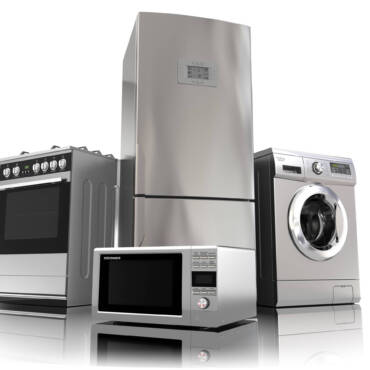A back up generator for your home puts control back where it belongs. Your hands.
There’s an old adage out there: A man’s home is his castle. It’s been used for centuries to express the irrefutable truth that a person’s home is a place where they should always feel safe and secure. But what happens when something threatens that, something completely outside of your control? Neighborhood blackouts have various causes. In a recent article, INSIDER can be quoted as saying, “[These] might have been considered a once-in-a-lifetime event in the past, but mass blackouts are starting to become a more regular feature of modern American life. Power outages have increased 64% from the early 2000s, and weather-related outages — many driven by the worsening climate crisis — have increased 78%.” (Dorrell, America’s electrical grid is headed for a total meltdown)
But first, what causes neighborhood blackouts?
If your home is your castle, then what’s inside it? Your family is your treasure. Your food and supplies are vital resources. As hard as you try to protect these things, events take place that you simply can’t plan for. It’s important to know what some of them are:
- Power grid issues: The most common cause of neighborhood blackouts is a problem with the power grid that supplies electricity to your area. This could be due to a slew of other issues, like equipment failure, an overloaded grid, or damaged power lines.
- Extreme weather conditions: Severe weather often necessitates the need for a back up generator for your home as well. Natural disasters like storms, hurricanes, tornadoes, and heavy snow can cause power outages. Either over time or all at once, they damage power lines, transformers, and other electrical equipment.
- Human error: Now, you might be asking yourself, “How can human error cause a blackout?” It’s more common than you think. Something as simple as a vehicle hitting a power pole or a construction worker accidentally damaging an underground cable can cut power to your entire neighborhood.
- Maintenance and repair work: Not everything is always an accident. Scheduled maintenance or repair work on power lines, transformers, and other equipment can cause power outages in the affected area. Sounds all fine and good, until your neighborhood is the affected area.
- Sabotage or vandalism: And of course, the best for last. Yes, it happens, although very rare. Sabotage or vandalism of electrical infrastructure can cause significant damage to the power grid. The resulting blackout is widespread and can last indefinitely.
But there is a way to plan for these things. You don’t have to worry about the safety of your family or the loss of your food and supplies during an unexpected outage.
The benefits of a back up generator for your home
The first, of course, is peace of mind. But what’re the rest?
A back up generator is a device that provides electricity to your home in the event of a power outage. They’re designed to automatically turn on when the main power source fails and continue the flow of energy to your essential appliances and devices. Things like lights, refrigerators, and medical equipment will all keep running. When the neighborhood goes dark, your lights will be on.
And a back up generator for your home does so much more:
- Provides safety and security: At first thought, power outages might seem harmless. The power will come back, right? That’s what makes them dangerous, especially during extreme weather conditions and it’s unclear when things will be fixed. Having a back up generator ensures that your family is safe and secure, with access to the necessities you’re used to.
- Protects your home and belongings: Your home is a well-oiled machine with numerous parts working in the background. Power outages can cause damage to your home and belongings. With a back up generator for your home, you can keep your security system, sump pump, and other devices working to prevent damage or loss.
- Prevents loss of food: We’ve all done it before. The power goes out and by candlelight we transfer our fridge into every cooler we can find. Power outages can cause your food supply to spoil. With a back up generator, you can keep your refrigerator and freezer running to prevent food spoilage and waste.
- Provides convenience: You’re a busy person, and you understand the value of working hard and relaxing harder. With a back up generator, you don’t have to worry about the inconvenience of power outages. You can keep your lights on, your phone charged, and your appliances running.
Choosing the right back up generator for your home
As with anything this important, there are several factors to consider. The selection process is as unique as you are, your home, and your family, your resources. Thankfully, we’ve broken it down for you into two easy starting points: Power output and size. Now, these might sound the same, but they do have slightly different purposes. Let’s talk about them.
When selecting a back up generator for your home, the power output of the generator is a key consideration. It determines how many appliances and other devices the generator can power during an outage. Take a moment and consider the things you want to keep running during an outage and choose a generator with a power output that meets those needs. On top of this, the type of fuel used to power the generator is also worth considering. Back up generators can be powered by natural gas, propane, or diesel, and you should choose a fuel type that is readily available in your area and cost-effective.
Another essential factor to consider is the actual size of the generator. Back up generators come in various sizes, from portable units to whole-house generators. It is crucial to select a size that is appropriate for your needs and budget. Noise level is another factor to consider. Back up generators can be noisy, and if you live in a neighborhood with noise restrictions, you may need to choose a quieter one.
Maintaining your new back up generator
To ensure the back up generator for your home is ready when you need it, it’s important to perform regular maintenance. Some of these tasks include:
- Regular testing: Test your back up generator on a consistent schedule to ensure it is working properly. Trust us, this is easy to forget. That’s why we’re saying it here.
- Fuel management: Keep your fuel tank filled to ensure that your generator has enough fuel to run during an outage.
- Oil changes: Yes, oil changes. A back up generator for your home is a lot like a vehicle. Take care of it and it will take care of you.
- Air filter changes: Just like oil changes, this is also an important step. The air filter in your generator ensures clean airflow and overall longevity.
Sounds like a lot of work, and that’s because it is. However, it’s well worth it, especially if you can find a professional who will maintain it for you.
Finding the right professional to install your back up home generator
At the end of the day, a back up generator can provide safety, security, convenience, and protection for your home, your family, and your resources during a power outage. When choosing a back up generator for your home, consider its power output, fuel type, size, noise level, and installation. Perform regular maintenance to ensure it’s ready when you need it. Finding the right professional makes all the difference.
Back up generators do require professional installation to ensure proper operation and safety. When choosing a generator, also consider choosing one that comes with professional installation service and maintenance. Only trust licensed electricians to install it.
A professional electrician will ensure that the generator is installed correctly and meets all local and state regulations. By considering all these factors, you can select the right back up generator for your home and ensure that you are prepared for anything.
Your home is your castle. It’s time to protect it.


